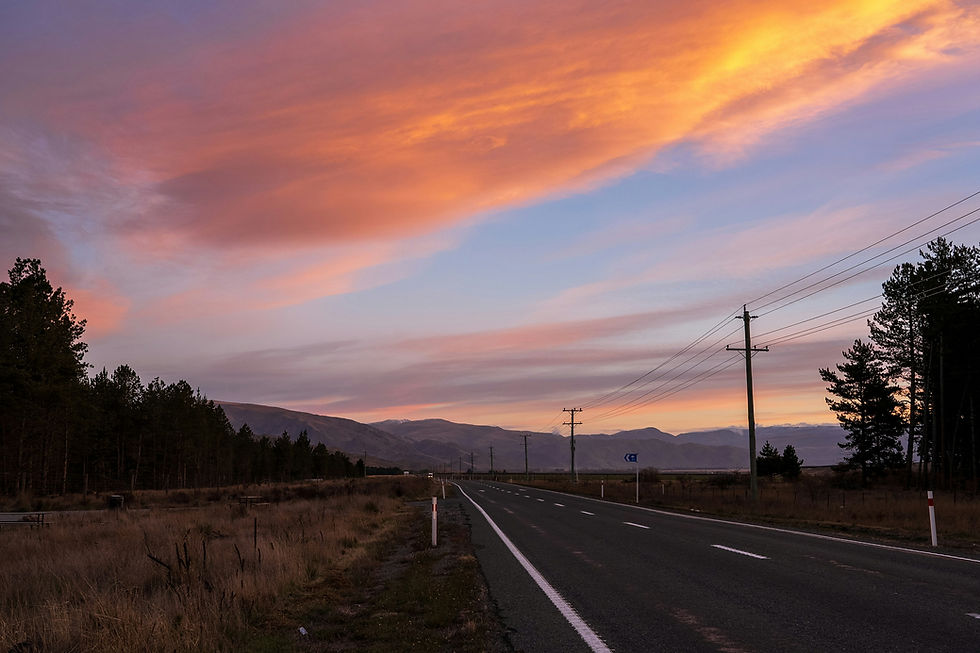Rebuilding Confidence in Wellington: A City Worth Fighting For
- Our Words Matter
- Oct 9, 2025
- 3 min read
I’ve lived and worked in Wellington for much of my adult life. It’s where my five children are growing up - catching buses to school, playing sport on windswept fields, walking through streets that feel like a village and a capital all at once. It’s the city where I studied at university, built my legal career, volunteered in the community, and stood on the sidelines with other parents at Saturday netball. So when I read the latest Wellington Chamber of Commerce business confidence survey, it struck a chord.
Among forty senior business leaders employing about a thousand people in the CBD, almost a third say their performance is worse than a year ago.
Only one in ten expect the city’s economy to be substantially better in the year ahead.
Those numbers aren’t just statistics. They speak to a mood that anyone walking through town can sense - a feeling that Wellington is a little stuck, a little unsure of its future.
That unease has real roots. Families are tightening their belts. Costs keep climbing. Productivity pressures remain stubborn. Business leaders talk about weak consumer demand, rising interest rates, and frustrations with how local decisions are made. I see these pressures every day, whether it’s through my legal work with businesses, the mothers I meet on community projects, or my own experiences juggling school pick-ups, after-school activities and the cost of keeping a household running.
Confidence matters because once it starts to slide, it can take a lot to rebuild. When businesses pull back, opportunities dry up. When city life feels harder, people drift away or disengage. And when that happens, it’s not just the balance sheets that suffer - schools, social services, community programmes and neighbourhood life all feel the strain.
Wellington has enormous strengths: smart, creative people; a compact city centre; a strong civic spirit. But lately, too many conversations end with a shrug. People talk about transport frustrations, council processes that feel distant, and the sense that things happen to them rather than with them. That’s how confidence frays - quietly, bit by bit.
Turning that around doesn’t require grand gestures, but it does require honesty and shared effort. Trust between businesses, local government and communities has to be rebuilt through real partnerships, not just consultation after the fact. When businesses feel blindsided by decisions on rates, transport or planning, and communities feel their voices are token, everyone loses confidence. Early, open dialogue where different groups work together on solutions would go a long way to shifting the mood.
We also need to fix some of the everyday frictions that make living and working in Wellington harder than it should be. Transport is an obvious one. Whether you’re a parent trying to get children to school, a young person biking to work, or a small business relying on steady foot traffic, the daily experience of moving through the city shapes how people feel about it. Reliable public transport, safer walking routes, and better-managed parking aren’t just infrastructure issues -they’re confidence builders.
Supporting families has to be part of the equation too. A city that makes it easier for parents to live, work and raise kids is a city that attracts and keeps talent. Good schools, affordable housing and accessible childcare are not “nice to haves” but the backbone of a thriving community. I know in my own household, like many others, how much difference those basic things make to how manageable daily life feels.
There’s also room for thoughtful economic measures to support the city centre. Targeted rate relief, streamlined consenting for adaptive building reuse, and smart public–private partnerships could help encourage investment and activity without overburdening future ratepayers. These kinds of pragmatic steps can signal that the city is open to working with people who want to contribute to its future.
More broadly, Wellington’s planning and governance structures need to be agile enough to adapt to economic shocks, climate pressures and shifting population patterns. Confidence is undermined when systems feel rigid and slow. A city that can adjust quickly, while staying fair and transparent, will always fare better than one that lurches from issue to issue.
When I walk through Wellington with my kids, I still see the city I fell in love with - the harbour sparkling on a crisp morning, the chatter of students, the buzz of ideas swirling close to power. This is a place worth fighting for. But confidence doesn’t rebuild itself. It grows when people trust each other enough to act together.
This survey is more than a snapshot of business sentiment. It’s a reminder that Wellington’s future is still ours to shape - if we choose not to drift, but to pull together and steer.







Comments